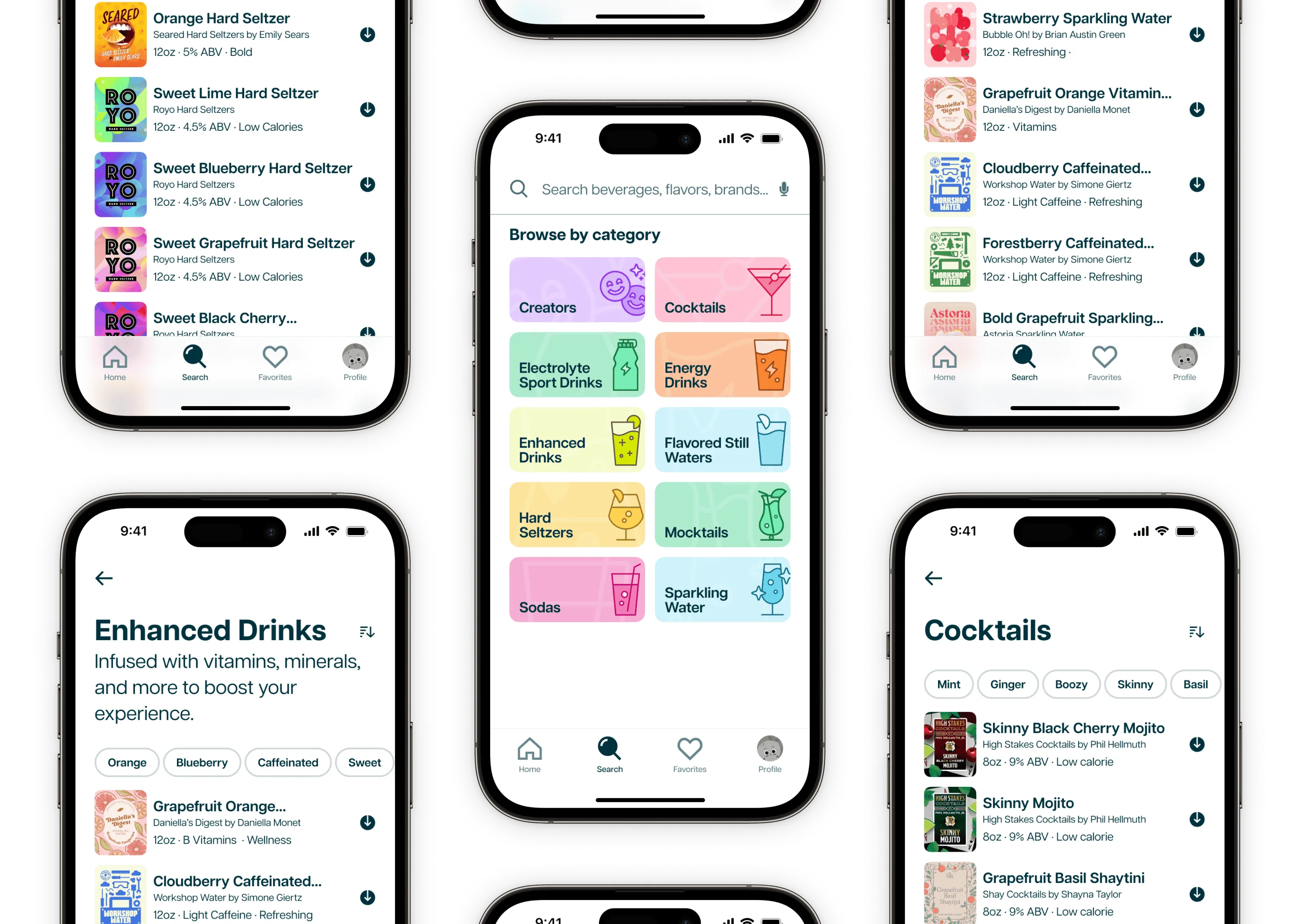Overview
Background
Cana was on an audacious mission to create the world’s first molecular beverage printer, able to print any beverage from molecularized ingredients from a cartridge mixed with water, sugar or alternative sweeteners, and alcohol or carbonation.
This beverage printer was designed to democratize small scale manufacturing of beverages, providing infinite choice and unlimited consumption with less waste as reducing plastic, cans, and CO2 was part of our mission.
Problem
The user can get overwhelmed from the hundreds of beverages our platform offered, and have a hard time exploring the catalog or finding a specific beverage.
Opportunity
We can provide partners an interface to create their own beverages based on the cartridge and based on our own knowledge of how ingredients taste when paired together.

Solution
We allowed users to discover beverages by presenting collections of beverages available through the home feed, based on their consumption patterns, time of day, cartridge availability, and consumption by similar users.
I designed search on mobile to support multiple types of queries and updated browsing on both mobile and device to support filters to get to relevant beverages quickly.
Role
I lead end-to-end experience on beverage search & browse on mobile, as well as improved browse on device.
Team
I collaborated with Head of Product, Product Manager, Head of Software, Head of Firmware for product definition and feasibility and presented final work to 2 in-house software engineers and an engineering team located in India.
Process
Affinity Diagramming
We prioritized user stories of beverage discovery to align with our UX and engineering in the order to tackle the beverage discovery features. We prioritized basic browse, search, and dynamic home feed of collections, while establishing a flexible framework for more complex features in the future.
Secondary Research
I reviewed recommendations from Baymard Institute’s Search UX Query Types and principles to help guide our UX considerations.
Information Architecture
Heuristic evaluation led us to realize that some categories had too many beverages. We added and renamed categories so they could be more aligned with customers’ mental models.





